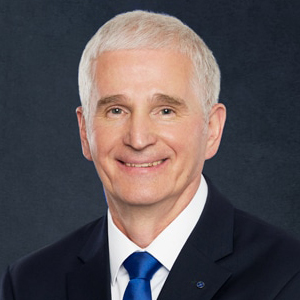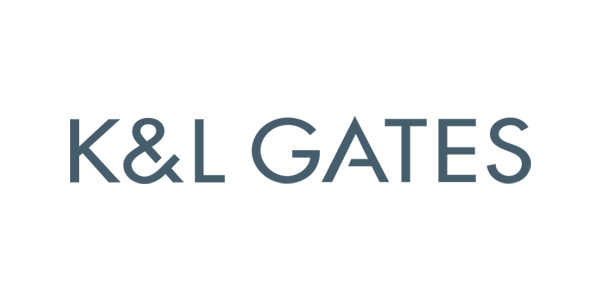AI Governance & Compliance Summit: Seattle
In today’s rapidly evolving digital economy, artificial intelligence is no longer experimental; it’s operational. The Seattle AI Governance & Strategy Summit brings together the nation’s leading in-house counsel, compliance officers, data and security executives, and technology innovators to explore how organizations are governing AI responsibly while driving business growth. This is where high-level strategy meets real-world execution. Join the conversation on building defensible AI governance frameworks, mitigating legal and contractual risk, safeguarding data and IP, and aligning innovation with accountability across the enterprise.
Designed for professionals at the intersection of law, technology, and risk management, this summit delivers practical insights, benchmarking opportunities, and actionable takeaways to strengthen your organization’s AI oversight. From cross-functional governance and ethical AI practices to global regulatory readiness and vendor accountability, you’ll hear how leading companies are turning compliance into competitive advantage. Whether you oversee legal, data, or innovation strategy, the Seattle AI Governance & Strategy Summit is your opportunity to connect with peers, gain a forward-looking perspective, and lead your company into the next era of responsible AI.
This event is co-located with the IP Strategy Summit, offering participants access to both conferences for a single, full-day experience. Attendees gain the advantage of exploring cutting-edge AI governance strategies alongside the latest in IP innovation and enforcement, expanding perspectives and connections across both domains.
* 5.5 HRS WA CLE
- Cross-Functional AI Governance: Aligning Legal, IT, HR, and the C-Suite
- Mitigating Legal Risk in AI: Contracts, Liability, and Vendor Management
- From Policy to Practice: Building Defensible AI Governance Frameworks
- Data, Privacy & IP in the Age of AI: Safeguarding the Crown Jewels
- Agentic AI: Autonomy, Liability, and Legal Accountability
- AI Litigation Readiness: Bias, Discrimination, and Enforcement Actions
- Ethics Meets Enterprise: Avoiding Reputational and Regulatory Pitfalls
- C-Suite: Including COOs, STOs, CIOs, CSOs…
- Chief IP Counsel
- Chief Information Security Officer
- Chief Legal / Privacy / Data Protection Officer
- VP & Director of IP Strategy
- Chief, Deputy, Associate and/or Assistant General Counsel
- General Counsel
- Privacy / Trademark / Copyright / Patent Counsel
- Head of Litigation
- Director of Business and Legal Affairs
- Director / VP of Intellectual Property / Licensing
- Privacy Compliance Manager
- Information Security Manager
Agenda
AI risk management demands collaboration across every department—from engineering to HR to executive leadership. Effective governance requires shared accountability and unified decision-making frameworks. Aligning business, technical, and legal priorities is key to balancing innovation with responsible oversight.
This panel will explore:
- How cross-functional teams are managing AI oversight across business units.
- Structures that balance innovation with legal and compliance needs.
- The role of leadership buy-in and clear decision rights in effective AI governance.
- Lessons from organizations that have successfully implemented integrated frameworks.


Jennifer Cornely serves as Senior Product and Technology Counsel for Fluke Corporation. She provides legal guidance on product development, intellectual property, technology transactions, and compliance. She closely collaborates with global engineering, marketing, and product development teams to support innovation while ensuring adherence to industry standards and regulatory requirements. Her expertise helps drive Fluke’s mission of delivering reliable, high-quality tools and solutions to professionals worldwide.


Chris Pothering is a Vice President and Associate General Counsel at Expeditors. Prior to that, she was a partner at Short Cressman & Burgess. She has a comprehensive real estate, global procurement and business background with a focus on complex real estate and commercial transactions, and acquisitions. Chris earned her J.D. from the Dickinson Law and B.S. in Economics from the Lewis & Clark College.


Megan Fouty is the General Counsel and CHRO at Glowforge, Inc., a Seattle-based technology start-up that designs and produces 3D laser printers. Megan oversees the Legal, HR, customer support organization, recruiting, and the facilities team at Glowforge. Megan joined Glowforge’s executive team during a period of rapid growth. Megan came from heading up the legal team at Convoy, Inc. another Seattle-based technology start up. In addition to her day job, Megan founded and runs Diversity University, a company that provides diversity, equity, and inclusion tools such as trainings, project management, or assists in investigations for companies, law firms, and organizations. Megan’s background includes both law firm and in-house experience with previous senior legal positions at Moss Adams, one of the country’s largest public accounting firms and Expeditors International, a Fortune 500 international logistics company. Megan serves on the board of directors for Providence Pediatric Hospice of Seattle. Recently she was awarded the top ten 30 somethings by ACC national, received the “Legal MVP Award” by SimpleLegal, she was listed in Marquis 2022 Who’s Who in America, was featured on the International “The Counsel” Podcast, and was recognized by Women, Influence and Power in Law for Championing Diversity in-house and for Innovative Leadership. She has spoken around the country on a wide range of topics and is seen as a prominent leader in the legal community. She recently published her book The Art of Networking, providing anyone looking for career progression or to grow a more robust network with tangible tools and advice to do so.
As AI systems become embedded in every business function, questions around contractual responsibility, indemnity, and shared risk have intensified. The legal frameworks governing AI vendors are still evolving, leaving many companies exposed to uncertainty. Organizations must now find practical ways to manage liability while enabling innovation and scalability.
This panel will explore:
- Common gaps and risk allocation challenges in AI vendor and partner agreements.
- Practical approaches to liability, indemnity, and service-level terms for AI products.
- How to structure defensible vendor ecosystems that align with compliance expectations.
- Strategies for future-proofing contracts as AI regulation advances.


Shelly is a Legal Counsel for the Trust and Growth team at Docusign, where she counsels on product led growth strategies, and digital marketing initiatives. In her role, she also manages the global trademark portfolio and often advises on issues of brand protection.
Prior to her current role, she served as a Commercial Counsel at Docusign, negotiating a high volume of commercial, technology, and data privacy agreements for the financial services, healthcare and SMB segments of the business.
Shelly earned her primary law degree in India, followed by an LLM in IP and Tech law from University of Washington, Seattle


Dr. Paul A. Maltseff is a highly experienced professional in all aspects of intellectual property creation and management. He graduated as an electronic engineer from Mozhaysky Military Aerospace Engineering Academy (MMAEA), Saint Petersburg, Russia, and received Ph.D. and D.Sc. in applied cybernetics from MMAEA in 1981 and 1989 respectively, and was conferred Juris Doctor from a School of Law, Seattle University in 2005. Until 1992 he had been a professor in MMAEA and a head of laboratory in the National Academy of Sciences of USSR. During 1992-2014, Dr. Maltseff had been involved in R&D projects with Versatron Corp. and Intermec Technologies Corp. on senior engineering positions and as a chief intellectual property counsel. In January of 2014, he joined Datalogic as a chief intellectual property counsel. Dr. Maltseff holds 30 U.S. patents and authored more than 50 publications.


As AI adoption accelerates, organizations are challenged to move beyond policies written on paper to frameworks that work in practice. Governance must now be demonstrable, defensible, and integrated into daily decision-making. Companies across industries are redefining accountability, transparency, and oversight as core components of their AI strategy.
This panel will explore:
- How companies are structuring AI governance internally and reporting to executive leadership.
- Benchmarking frameworks and oversight models across industries.
- Actionable steps for turning AI governance policies into real operational workflows.
- Building defensible programs that can adapt to evolving regulation and technology.






Data is the lifeblood of AI and the primary source of risk. As organizations leverage data to train models and automate decisions, privacy, security, and intellectual l property concerns multiply. Protecting sensitive assets and maintaining trust has become a strategic imperative for every business using AI.
This panel will explore:
- How organizations ensure lawful data use, provenance, and training transparency.
- Methods for protecting trade secrets, IP, and proprietary datasets in AI systems.
- Best practices for embedding privacy and security controls across the AI lifecycle.
- Case studies of effective data governance programs that balance utility and protection.


Maria Elterman is a New York–licensed attorney and privacy leader at Meta, where she works on the FTC compliance program, supporting privacy governance and regulatory compliance at scale. She brings extensive experience operationalizing privacy and AI requirements across complex global organizations.
Previously, Maria was a Senior Privacy Manager at Microsoft, where she led cloud and AI privacy audits with zero findings and drove large-scale automation of privacy programs across thousands of products and services. She is CIPP/US and CIPP/EU certified and has advised on privacy impact assessments, cross-border data transfers, M&A, and regulator engagement.




Details to Come


Brendan Gutierrez McDonnell is a visionary thinker addressing legal and business challenges for public and private growth companies. He leverages technology, including AI, to enhance client service.
He advises on mergers, acquisitions, and financings, including private equity and venture capital. Brendan also provides guidance on securities and corporate laws (including director and officer duties), executive compensation, and general corporate contracts. His clients range from startups to Fortune 100 companies across industries like technology, manufacturing, specialty chemicals, transportation, logistics, consumer goods, creative services, and footwear and apparel.
With an accounting background, Brendan understands clients’ financial goals and offers tailored solutions. He advises multinational clients on global business issues, market entry, and international transactions. He also represents active private equity firms in acquisitions and operations.
Brendan is a partner in the firm’s AI Solutions Group and a member of the firm’s IDEA Group, promoting innovation. He previously served on the firm’s Management Committee for seven years.
AI systems capable of independent reasoning and decision-making are redefining accountability in real time. These “agentic” technologies blur the line between tool and actor—challenging existing legal and governance frameworks. As autonomy grows, oversight, explainability, and documentation are becoming essential safeguards for organizations.
This panel will explore:
- The unique risks and accountability gaps posed by autonomous AI systems.
- Frameworks for oversight, auditability, and human-in-the-loop assurance.
- Legal and regulatory developments defining responsibility in agentic AI use.
- Practical strategies to ensure traceability and control in self-directed systems.




Mahesh Ganesamoorthi is a Senior Software Engineering Lead at Expedia Group and an IEEE Senior Member, specializing in large-scale AI systems, experimentation platforms, and ML-driven personalization. With 12+ years of experience across enterprise AI, distributed systems, and optimization, he builds intelligent platforms that improve traveler engagement, notification intelligence, and real-time decisioning for millions worldwide.
Previously, Mahesh was a Senior SDE at Amazon, developing deep-learning–based demand forecasting models that processed billions of signals and delivered significant logistics and inventory savings. He has also led engineering and ML initiatives in high-growth startup environments.
An active AI researcher, Mahesh has published in IEEE venues on deep learning, reinforcement learning, and automated license plate recognition (ALPR). He also serves as an IEEE peer reviewer and judges global innovation competitions. Mahesh frequently speaks on responsible AI, experimentation frameworks, and the future of personalization—bridging advanced research with production-scale systems.


A distinguished industry expert in autonomous supply chain and robotics, Jon has designed over 150 greenfield facilities, overseen multibillion-dollar capital improvement investments, contributed to over 80 robotics-related patents, and played a critical role in integrating Kiva Robotics Systems into Amazon’s operation. Jon brings 40+ years of experience in enterprise systems, robotics and automation, including 17 years at Amazon and 25 years at Hallmark Cards. Jon has served on multiple Boards including Secretary RIA Robotics Industry Association, University of Washington ME Board and currently A3 Artificial Intelligence Industry Board. At Cobot, Jon leads technology strategy, applying decades of robotics and automation expertise to shape the next generation of collaborative, AI-powered systems for the physical world.
As AI tools become embedded in employment, financial, and consumer-facing decisions, litigation and enforcement risks are rising fast. Regulators are sharpening their focus on algorithmic bias, transparency, and accountability, while plaintiffs’ attorneys are testing new theories of liability under civil rights and consumer protection laws. Companies must act now to assess exposure, strengthen documentation, and establish defensible governance practices before claims arise.
This panel will explore:
- Real-world litigation and enforcement risks emerging from AI use across sectors.
- Practical steps companies can take to monitor, document, and defend their AI systems.
- Key trends in lawsuits, investigations, and regulatory scrutiny shaping corporate risk.
- How in-house and outside counsel can collaborate to ensure readiness and minimize liability.


Jon is Associate General Counsel at USAA, where he is lead counsel on matters related to Predictive Model/AI issues for USAA’s insurance companies. Jon collaborates closely with USAA’s Model Risk Management team in order to establish and maintain robust AI governance controls. Jon graduated from Oklahoma State University (2004) and the University of Illinois College of Law (2007). Jon is a Project Management Professional (PMP), an Artificial Intelligence Governance Professional (AIGP), a Certified Information Privacy Professional for both the US and EU Jurisdictions (CIPP-US/E), and has completed coursework from the MIT Sloan School of Management and the MIT Computer Science and Artificial Intelligence Laboratory (CSAIL). Jon lives on Camano Island with his wife and five children.
Embedding ethics into AI development and deployment is no longer just good practice it’s good business. As public awareness and regulatory scrutiny increase, organizations must ensure their innovation aligns with values of fairness, transparency, and accountability. Strong ethical governance can both mitigate reputational risk and drive sustainable, trusted innovation.
This panel will explore:
- Practical strategies for integrating ethical principles into AI program design.
- Managing reputational risk and public trust in high-profile or sensitive use cases.
- The role of cross-functional review committees and governance boards.
- How transparency and stakeholder engagement can mitigate emerging risks.




Emmi is HP’s Principal Data Ethicist in Innovation and Emerging Technologies, and a Senior Fellow in Ethics and AI at the World Privacy Forum. Her work focuses on consent and the social impact of technological phenomenology. She speaks frequently on sensitive and health data, data ethics and the development of meaningful Privacy Enhancing Technologies.


Gina Giró i Aguirre serves as Product Counsel at Logitech, where she provides strategic legal guidance at the intersection of product development, business strategy and emerging regulations. Admitted to practice law in both California and Spain, Gina brings a unique international perspective to global compliance, bridging the gap between North American legal frameworks and European standards. As an AI Governance Certified Professional, Gina collaborates closely with business leadership, engineering, design, and product teams to translate complex regulatory requirements into actionable business strategies, ensuring agility and compliance in a fast-paced tech environment.
Rotating, 20-minute discussions hosted by a topic expert
Roundtable 1: Topic TBA
Brendan Gutierrez McDonnell, Partner, K&L Gates


Brendan Gutierrez McDonnell is a visionary thinker addressing legal and business challenges for public and private growth companies. He leverages technology, including AI, to enhance client service.
He advises on mergers, acquisitions, and financings, including private equity and venture capital. Brendan also provides guidance on securities and corporate laws (including director and officer duties), executive compensation, and general corporate contracts. His clients range from startups to Fortune 100 companies across industries like technology, manufacturing, specialty chemicals, transportation, logistics, consumer goods, creative services, and footwear and apparel.
With an accounting background, Brendan understands clients’ financial goals and offers tailored solutions. He advises multinational clients on global business issues, market entry, and international transactions. He also represents active private equity firms in acquisitions and operations.
Brendan is a partner in the firm’s AI Solutions Group and a member of the firm’s IDEA Group, promoting innovation. He previously served on the firm’s Management Committee for seven years.
Speakers


Shelly is a Legal Counsel for the Trust and Growth team at Docusign, where she counsels on product led growth strategies, and digital marketing initiatives. In her role, she also manages the global trademark portfolio and often advises on issues of brand protection.
Prior to her current role, she served as a Commercial Counsel at Docusign, negotiating a high volume of commercial, technology, and data privacy agreements for the financial services, healthcare and SMB segments of the business.
Shelly earned her primary law degree in India, followed by an LLM in IP and Tech law from University of Washington, Seattle






Mahesh Ganesamoorthi is a Senior Software Engineering Lead at Expedia Group and an IEEE Senior Member, specializing in large-scale AI systems, experimentation platforms, and ML-driven personalization. With 12+ years of experience across enterprise AI, distributed systems, and optimization, he builds intelligent platforms that improve traveler engagement, notification intelligence, and real-time decisioning for millions worldwide.
Previously, Mahesh was a Senior SDE at Amazon, developing deep-learning–based demand forecasting models that processed billions of signals and delivered significant logistics and inventory savings. He has also led engineering and ML initiatives in high-growth startup environments.
An active AI researcher, Mahesh has published in IEEE venues on deep learning, reinforcement learning, and automated license plate recognition (ALPR). He also serves as an IEEE peer reviewer and judges global innovation competitions. Mahesh frequently speaks on responsible AI, experimentation frameworks, and the future of personalization—bridging advanced research with production-scale systems.


Jennifer Cornely serves as Senior Product and Technology Counsel for Fluke Corporation. She provides legal guidance on product development, intellectual property, technology transactions, and compliance. She closely collaborates with global engineering, marketing, and product development teams to support innovation while ensuring adherence to industry standards and regulatory requirements. Her expertise helps drive Fluke’s mission of delivering reliable, high-quality tools and solutions to professionals worldwide.


Chris Pothering is a Vice President and Associate General Counsel at Expeditors. Prior to that, she was a partner at Short Cressman & Burgess. She has a comprehensive real estate, global procurement and business background with a focus on complex real estate and commercial transactions, and acquisitions. Chris earned her J.D. from the Dickinson Law and B.S. in Economics from the Lewis & Clark College.


Maria Elterman is a New York–licensed attorney and privacy leader at Meta, where she works on the FTC compliance program, supporting privacy governance and regulatory compliance at scale. She brings extensive experience operationalizing privacy and AI requirements across complex global organizations.
Previously, Maria was a Senior Privacy Manager at Microsoft, where she led cloud and AI privacy audits with zero findings and drove large-scale automation of privacy programs across thousands of products and services. She is CIPP/US and CIPP/EU certified and has advised on privacy impact assessments, cross-border data transfers, M&A, and regulator engagement.


Dr. Paul A. Maltseff is a highly experienced professional in all aspects of intellectual property creation and management. He graduated as an electronic engineer from Mozhaysky Military Aerospace Engineering Academy (MMAEA), Saint Petersburg, Russia, and received Ph.D. and D.Sc. in applied cybernetics from MMAEA in 1981 and 1989 respectively, and was conferred Juris Doctor from a School of Law, Seattle University in 2005. Until 1992 he had been a professor in MMAEA and a head of laboratory in the National Academy of Sciences of USSR. During 1992-2014, Dr. Maltseff had been involved in R&D projects with Versatron Corp. and Intermec Technologies Corp. on senior engineering positions and as a chief intellectual property counsel. In January of 2014, he joined Datalogic as a chief intellectual property counsel. Dr. Maltseff holds 30 U.S. patents and authored more than 50 publications.










Megan Fouty is the General Counsel and CHRO at Glowforge, Inc., a Seattle-based technology start-up that designs and produces 3D laser printers. Megan oversees the Legal, HR, customer support organization, recruiting, and the facilities team at Glowforge. Megan joined Glowforge’s executive team during a period of rapid growth. Megan came from heading up the legal team at Convoy, Inc. another Seattle-based technology start up. In addition to her day job, Megan founded and runs Diversity University, a company that provides diversity, equity, and inclusion tools such as trainings, project management, or assists in investigations for companies, law firms, and organizations. Megan’s background includes both law firm and in-house experience with previous senior legal positions at Moss Adams, one of the country’s largest public accounting firms and Expeditors International, a Fortune 500 international logistics company. Megan serves on the board of directors for Providence Pediatric Hospice of Seattle. Recently she was awarded the top ten 30 somethings by ACC national, received the “Legal MVP Award” by SimpleLegal, she was listed in Marquis 2022 Who’s Who in America, was featured on the International “The Counsel” Podcast, and was recognized by Women, Influence and Power in Law for Championing Diversity in-house and for Innovative Leadership. She has spoken around the country on a wide range of topics and is seen as a prominent leader in the legal community. She recently published her book The Art of Networking, providing anyone looking for career progression or to grow a more robust network with tangible tools and advice to do so.


A distinguished industry expert in autonomous supply chain and robotics, Jon has designed over 150 greenfield facilities, overseen multibillion-dollar capital improvement investments, contributed to over 80 robotics-related patents, and played a critical role in integrating Kiva Robotics Systems into Amazon’s operation. Jon brings 40+ years of experience in enterprise systems, robotics and automation, including 17 years at Amazon and 25 years at Hallmark Cards. Jon has served on multiple Boards including Secretary RIA Robotics Industry Association, University of Washington ME Board and currently A3 Artificial Intelligence Industry Board. At Cobot, Jon leads technology strategy, applying decades of robotics and automation expertise to shape the next generation of collaborative, AI-powered systems for the physical world.


Jon is Associate General Counsel at USAA, where he is lead counsel on matters related to Predictive Model/AI issues for USAA’s insurance companies. Jon collaborates closely with USAA’s Model Risk Management team in order to establish and maintain robust AI governance controls. Jon graduated from Oklahoma State University (2004) and the University of Illinois College of Law (2007). Jon is a Project Management Professional (PMP), an Artificial Intelligence Governance Professional (AIGP), a Certified Information Privacy Professional for both the US and EU Jurisdictions (CIPP-US/E), and has completed coursework from the MIT Sloan School of Management and the MIT Computer Science and Artificial Intelligence Laboratory (CSAIL). Jon lives on Camano Island with his wife and five children.






Emmi is HP’s Principal Data Ethicist in Innovation and Emerging Technologies, and a Senior Fellow in Ethics and AI at the World Privacy Forum. Her work focuses on consent and the social impact of technological phenomenology. She speaks frequently on sensitive and health data, data ethics and the development of meaningful Privacy Enhancing Technologies.




Gina Giró i Aguirre serves as Product Counsel at Logitech, where she provides strategic legal guidance at the intersection of product development, business strategy and emerging regulations. Admitted to practice law in both California and Spain, Gina brings a unique international perspective to global compliance, bridging the gap between North American legal frameworks and European standards. As an AI Governance Certified Professional, Gina collaborates closely with business leadership, engineering, design, and product teams to translate complex regulatory requirements into actionable business strategies, ensuring agility and compliance in a fast-paced tech environment.


Brendan Gutierrez McDonnell is a visionary thinker addressing legal and business challenges for public and private growth companies. He leverages technology, including AI, to enhance client service.
He advises on mergers, acquisitions, and financings, including private equity and venture capital. Brendan also provides guidance on securities and corporate laws (including director and officer duties), executive compensation, and general corporate contracts. His clients range from startups to Fortune 100 companies across industries like technology, manufacturing, specialty chemicals, transportation, logistics, consumer goods, creative services, and footwear and apparel.
With an accounting background, Brendan understands clients’ financial goals and offers tailored solutions. He advises multinational clients on global business issues, market entry, and international transactions. He also represents active private equity firms in acquisitions and operations.
Brendan is a partner in the firm’s AI Solutions Group and a member of the firm’s IDEA Group, promoting innovation. He previously served on the firm’s Management Committee for seven years.
Sponsors

K&L Gates LLP
The legal market is rapidly changing, and so is the practice of law. It is both science and art. Clients want their law firm to be diligent and meticulous, but they also want it to solve problems with innovation and creativity. At K&L Gates, we foster an inclusive and collaborative environment across our fully integrated global platform that enables us to diligently combine the knowledge and expertise of our lawyers and policy professionals to create teams that provide exceptional client solutions. We marry action with vision, success with dedication, method with passion, and innovation with creativity. The outcome:
“The K&L Gates Experience.”
Venue
Venue TBA
Seattle, Washington
Pricing
| Register By | In House Counsel | Law Firms & Vendors |
|---|---|---|
| Complimentary Passes While they Last! | $0.00 | Contact info@centerforceusa.com |
| May 20, 2026 | $395.00 | Contact info@centerforceusa.com |
- Payment is due in full at the time of registration and includes lunches, refreshments and detailed conference materials.
- Your registration will not be confirmed until payment is received and may be subject to cancellation.
- You may substitute delegates at any time. CenterForce does not provide refunds for cancellations.
- For cancellations received in writing more than seven (7) days prior to the conference you will receive a 100% credit to be used at another CenterForce conference for up to one year from the date of issuance.
- For cancellations received seven (7) days or less prior to an event (including day 7), no credit will be issued. In the event that CenterForce cancels an event, delegate payments at the date of cancellation will be credited to a future CenterForce event. This credit will be available for up to one year from the date of issuance.
- In the event that CenterForce postpones an event, delegate payments at the postponement date will be credited towards the rescheduled date. If the delegate is unable to attend the rescheduled event, the delegate will receive a 100% credit representing payments made towards a future CenterForce event. This credit will be available for up to one year from the date of issuance. No refunds will be available for cancellations or postponements.
- CenterForce is not responsible for any loss or damage as a result of a substitution, alteration or cancellation/postponement of an event. CenterForce shall assume no liability whatsoever in the event this conference is cancelled, rescheduled or postponed due to a fortuitous event, Act of God, unforeseen occurrence or any other event that renders performance of this conference impracticable or impossible. For purposes of this clause, a fortuitous event shall include, but not be limited to: war, fire, labor strike, extreme weather or other emergency.
- Please note that speakers and topics were confirmed at the time of publishing, however, circumstances beyond the control of the organizers may necessitate substitutions, alterations or cancellations of the speakers and/or topics. As such, CenterForce reserves the right to alter or modify the advertised speakers and/or topics if necessary. Any substitutions or alterations will be updated on our web page as soon as possible.
- All discounts must require payment at time of registration and before the cut-off date in order to receive any discount.
- Any discounts offered whether by CenterForce (including team discounts) must also require payment at the time of registration.
- All discount offers cannot be combined with any other offer.